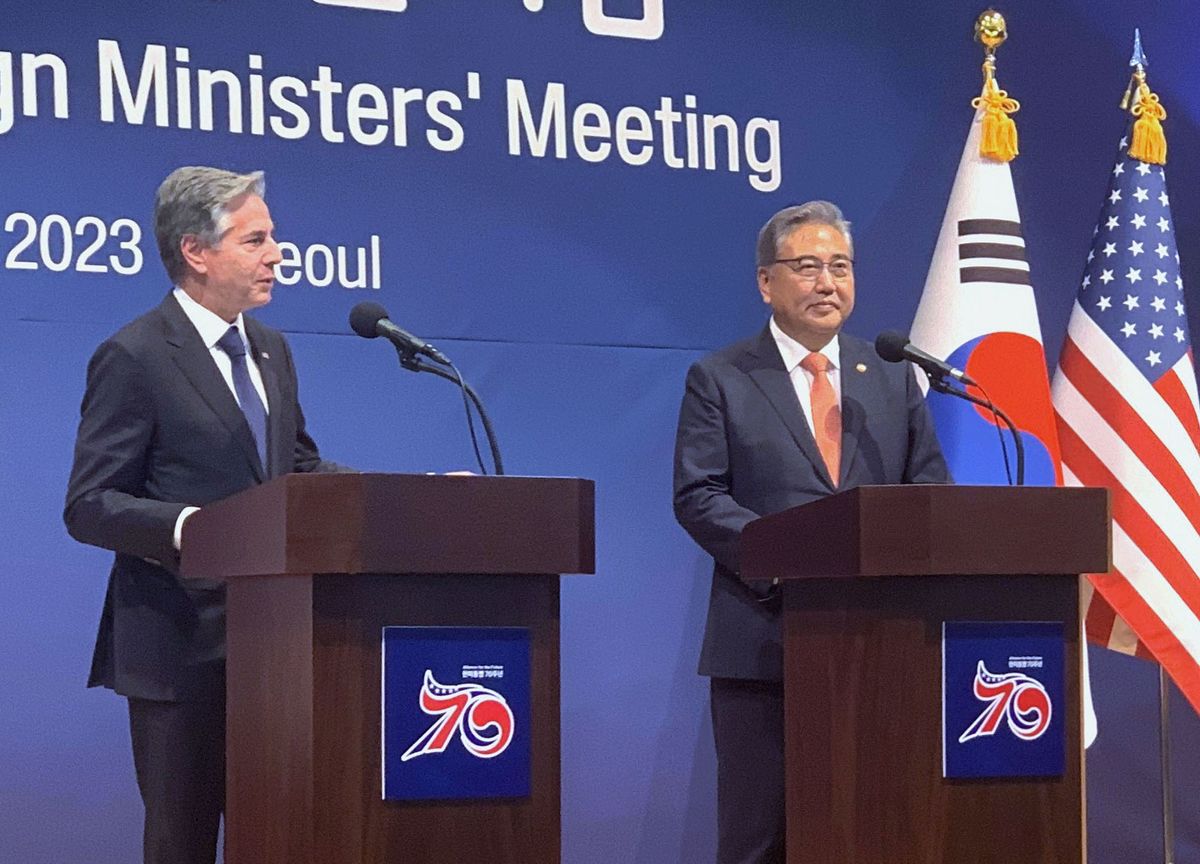US Secretary of State Anthony Blinken wrapped up a tour of Asian nations last week, as the United States worked to shore up support for its positions on issues including Russia’s war in Ukraine, China’s increased belligerence toward Taiwan, and the Israel-Hamas war in the Middle East.
On Thursday, Blinken met with South Korean officials including President Yoon Suk-yeol. The two countries reportedly aligned on their approach in the three arenas of conflict. According to South Korean intelligence reports, the matters are closely related. During a closed-door briefing to lawmakers last week, South Korea’s main spy agency said it believes that North Korean leader Kim Jong Un instructed officials to “comprehensively support” Palestinians and that the North could be considering selling weapons to terrorist organizations in the Middle East.
Then it was off to New Delhi, where Blinken and US Secretary of Defense Lloyd Austin met with their Indian counterparts and engaged on a host of issues including a diplomatic dispute between India and Canada over the alleged assassination by Indian forces of a Sikh separatist on Canadian soil, and increased hostilities on the border of India and China.
Blinken’s tête-à-têtes came on the heels of the G7 summit in Tokyo on Nov. 7 and 8, where Japanese and British defense ministers reiterated their preference for a two-state solution in the Middle East. The G7 later issued a joint statement that also condemned “destabilizing activities” by Iran and called on Tehran to de-escalate tensions in the region.
Blinken’s tour comes ahead of the first meeting between US President Joe Biden and Chinese President Xi Jinping in over a year, set for this week in San Francisco. While significant, expectations for agreement and action are low. “We’re not talking about a long list of outcomes or deliverables,” a senior administration official told reporters at a press conference last week. “The goals here really are about managing the competition, preventing the downside risk of conflict, and ensuring channels of communication are open.”
The two leaders’ agenda includes military communications, human rights, and the South China Sea. According to Eurasia Group Analyst Anna Ashton, much of the focus will be on Taiwan's presidential election, set for Jan. 13. “The candidate most likely to win based on current polling is Lai Ching-te, a member of the Democratic Progressive Party who draws support from Taiwan's most dedicated independence activists. That brings us to a second watchpoint in May, when Taiwan’s next president will be inaugurated,” says Ashton. And to another potential flashpoint for tensions between China and the US.



















